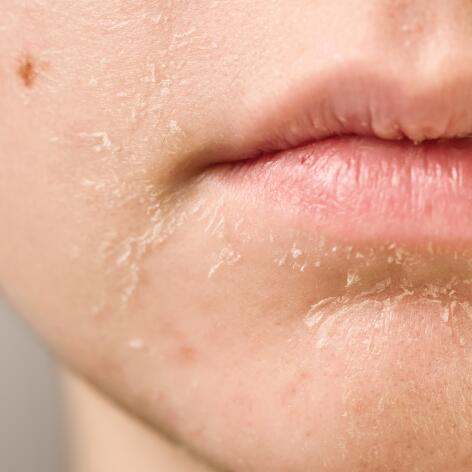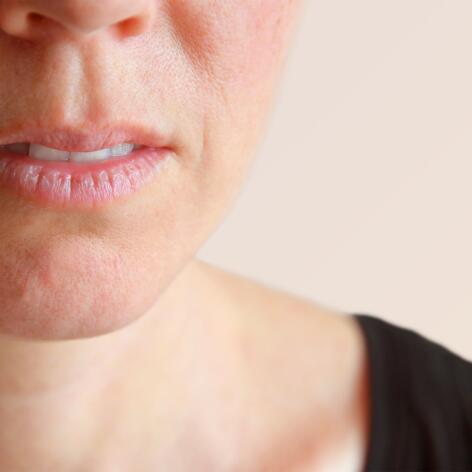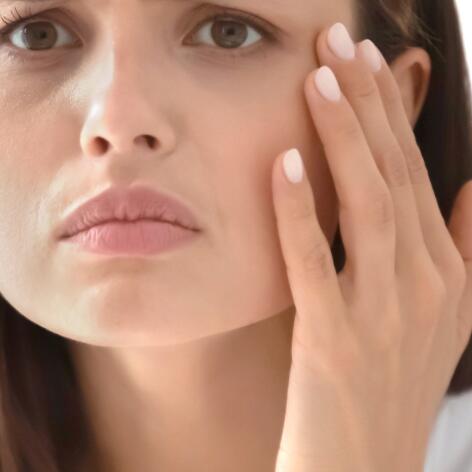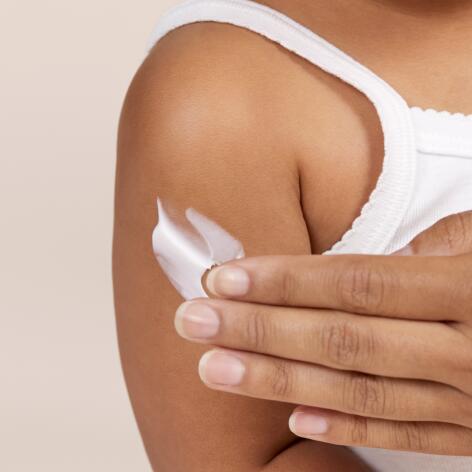Understanding and taking care of dry skin
“I have dry skin!” Who hasn't said that before? But are you sure it's really dry skin? Because dry to very dry skin is a very specific skin type. So how can you recognise it to take better care of it? We’ll tell you everything.

What is dry skin?
Dry skin isn't just a little tightness after showering. Dry skin is in fact a skin type in its own right. Like combination or oily skin. It is therefore a permanent state.
It is caused by a lack of lipids. Dry skin should not be confused with dehydrated skin, which lacks water.
How to identify dry skin?
Not sure if your skin is really dry? Some signs can help you establish the right analysis of your skin.
- Does your skin feel tight and tingly all over your face?
- Do you feel this discomfort during the day?
- Does your skin never glow?
- Does your makeup last all day?
- Do dry spots and slight redness sometimes appear?
- Does your skin feel restored after using an oily cream?
If the answer to all these questions is "Yes", there is a good chance that you are affected by dry skin.
Everything you need to know about the tell-tale signs of dry skin

Whenever winter arrives my skin is dryer. I need to change my routine and switch to richer creams so I don't get feelings of tightness because of dryness.
What causes dry skin?
Dry skin is skin that is lacking in lipids.
- Extremely dry skin can be a medical condition. Hypothyroidia, psoriasis, contact eczema, etc. To ensure the best care for this dryness, you need to contact a dermatologist to perform a precise diagnosis. Your dermatologist will then be able to advise you about a suitable treatment.
- It can also be hereditary. Some people naturally produce less lipids.
- Common dry skin. This is the most prevalent. It can be linked to age, the use of unsuitable and overly aggressive cosmetic products, climatic conditions and many other factors.
Dry skin: skin that needs nourishment
Dehydrated skin is thirsty, while dry skin needs to be nourished.
Since it does not produce enough sebum, you must provide it with fatty substances to keep it healthy.
The lipids that you are going to give it will act like a cement to consolidate the cells between them. Just like a brick wall: if it no longer has the necessary cement, it will eventually crumble. Skin is the same.
By nourishing your skin, you’ll restore its protective barrier, the hydrolipidic film. It will also prevent water from evaporating and keep your skin beautiful and hydrated for a long time.
Nourishing the skin therefore helps to restore the skin’s moisture barrier, fight against external aggression and prevent dehydration.
All of our tips to nourish your skin


Dry skin: daily care
“Dry skin” means that you will have to adapt by focusing on dedicated skincare, but also adopt habits to repeat every day. Because although skin dryness is the result of internal factors (which are difficult to combat), it is also exacerbated by external factors.
So, why is it better to avoid hot showers and baths? Which cosmetics and care products should you use on a daily basis? And what should be avoided? Does dry skin mean that I can't exfoliate? How do you specifically nourish your hands or legs? Should hygiene practices be the same in winter and summer? Does diet affect this?
Follow the guide to find the answers to these questions... and more.
Our tips for taking care of dry skin
FRIENDLY (AND EXPERT) ADVICE
For dry or very dry skin, applying a moisturising or lipid-replenishing balm will be your best ally. This will restore and nourish your skin dried out by external aggressions. Using a balm, with circular massages, concentrating on rough or dry areas, is an essential daily step to restore the skins comfort.
WE ANSWER YOUR QUESTIONS
To sort the true from the false: that's what we're here for.
FALSE. Dry skin is caused by a lack of lipids in the skin. It is therefore possible to have healthy but naturally dry skin. On the other hand, unsuitable hygiene products can accentuate dryness... But this is not, in this case, a hygiene defect as such.
TRUE. Cold exacerbates dry skin. In winter, the body makes the vessels on the surface of the skin shrink. This is called vasoconstriction. The purpose is to retain heat in the vital organs. At the expense of the epidermis. If you combine this with a "hot-cold" alternation between overheated interiors and exteriors, you have all the elements to dry out the skin.
TRUE. The reason is simple. Because it is not protected by clothing like the rest of the body, the skin of the face is in the front line of external aggressions: heat, cold, pollution. Not to mention that the skin on the face is thinner and more fragile. Remember that the hands are also affected.
Our solutions for dry skin
Avène Thermal Spring Water skincare products designed to make you feel better about your skin
Cold Cream: “It’s perfect for my skin and my children’s skin. It has a creamy texture and a delicate fragrance, I really love it!"
MORE
NEWSLETTER
We're always here for your skin!
All our tips on how to take care of your skin every day.

Which skin care routine should you adopt?
Identify what it really needs with the help of our experts and discover the most suitable skin care routine for you.



